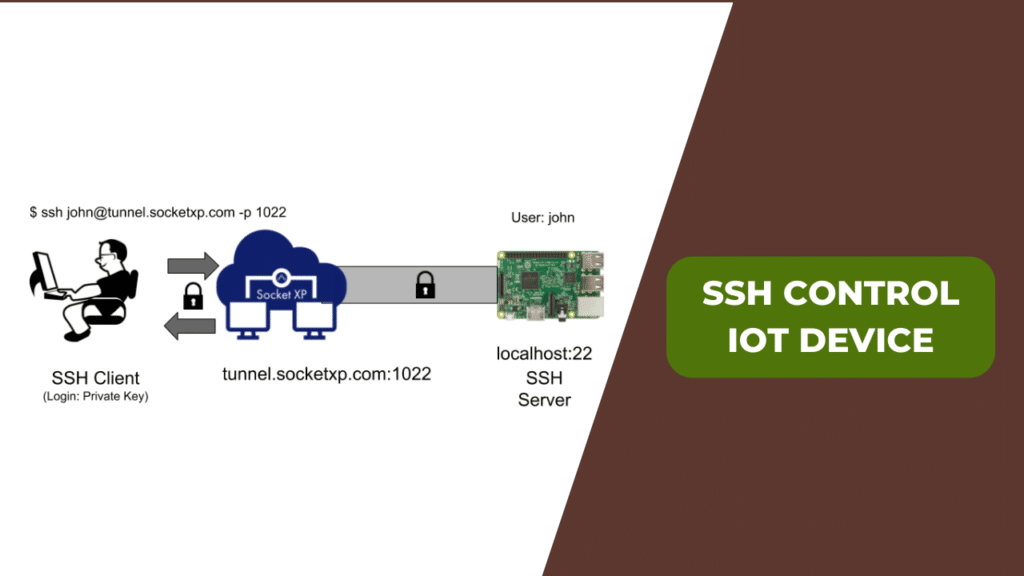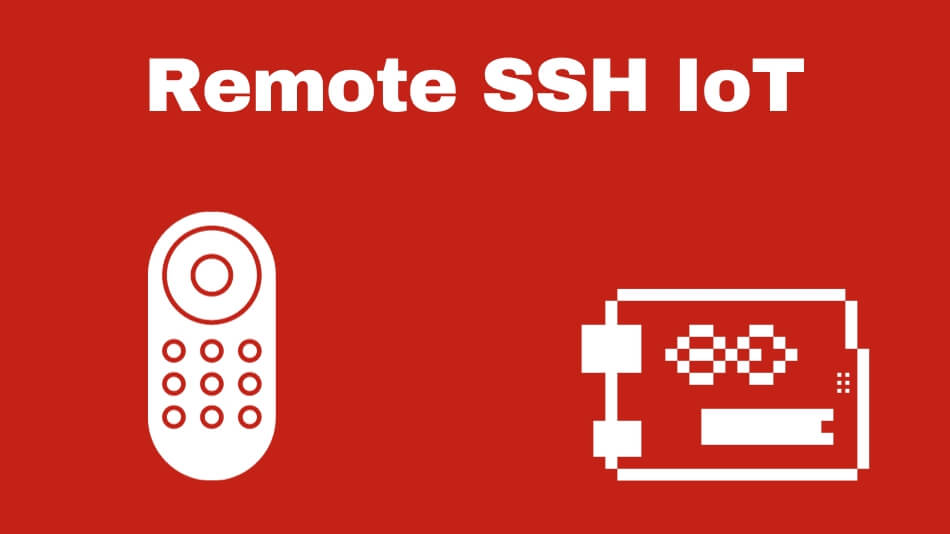Hey there tech enthusiasts! If you're diving into the world of IoT (Internet of Things) and looking for the best SSH IoT device, you're in the right place. In today's interconnected world, ensuring secure communication between devices is more important than ever. SSH (Secure Shell) acts as a digital bodyguard, protecting your data and privacy. Let’s explore how SSH works in IoT and why it’s a game-changer for your smart gadgets. Don’t worry, we’ll keep it simple and fun!
SSH isn’t just a fancy term for techies; it’s a tool that keeps your IoT devices safe from hackers and cyber threats. Whether you’re managing a smart home, a fleet of industrial sensors, or a network of wearable devices, SSH ensures your data remains confidential and tamper-proof. In this article, we’ll break down everything you need to know about the best SSH IoT devices and why they matter.
So, buckle up! We’re about to take you on a journey through the world of secure IoT connections. From understanding the basics of SSH to discovering the top devices in the market, we’ve got you covered. Let’s dive in!
Read also:Camilla Parker Bowles And Her Journey With Liver Disease A Story Of Resilience
What Is an SSH IoT Device?
An SSH IoT device is any gadget that uses Secure Shell protocols to establish encrypted connections. Think of it as a secret handshake between your devices and servers. This handshake ensures that only authorized parties can access sensitive information. SSH isn’t just for computers anymore; it’s now a staple in the IoT ecosystem.
Here’s why SSH is crucial:
- It encrypts data, making it unreadable to unauthorized users.
- It verifies the identity of devices and users, preventing impersonation.
- It provides a secure channel for remote management of IoT devices.
In the IoT space, where billions of devices are connected, SSH acts as a shield, protecting your network from malicious attacks. Now that we’ve covered the basics, let’s explore the top SSH IoT devices that are making waves in the tech world.
Top 10 Best SSH IoT Devices
Choosing the right SSH IoT device can be overwhelming, especially with so many options available. To help you out, we’ve compiled a list of the top 10 devices that offer robust security and seamless connectivity.
#1 Raspberry Pi
The Raspberry Pi is a fan favorite in the IoT community. This tiny yet powerful device supports SSH out of the box, making it perfect for beginners and pros alike. With its affordable price tag and vast community support, the Raspberry Pi is a top contender for secure IoT projects.
#2 ESP32
The ESP32 is another gem in the IoT world. Known for its dual-core processor and Wi-Fi capabilities, this device is ideal for projects requiring secure wireless communication. Its compatibility with SSH makes it a reliable choice for building smart home systems and industrial applications.
Read also:Kid And Mum Cctv Video A Closer Look At Family Moments Captured On Camera
#3 BeagleBone Black
For those who want a bit more power, the BeagleBone Black is an excellent option. This single-board computer offers SSH support and is perfect for projects that demand high performance and reliability. Its GPIO pins and expansion options make it versatile for various IoT applications.
Factors to Consider When Choosing an SSH IoT Device
Before you jump into buying an SSH IoT device, there are a few factors you should consider:
- Security Features: Look for devices with robust encryption and authentication mechanisms.
- Performance: Ensure the device can handle the workload of your IoT project without compromising speed.
- Compatibility: Check if the device is compatible with your existing infrastructure and software.
- Community Support: Devices with active communities tend to have better documentation and troubleshooting resources.
By keeping these factors in mind, you’ll be able to choose a device that meets your specific needs and ensures a secure IoT experience.
How SSH Works in IoT
SSH operates by creating a secure tunnel between two devices. This tunnel encrypts all data exchanged, making it impossible for hackers to intercept or alter the information. Here’s a simplified breakdown of how SSH works in IoT:
- Authentication: Devices authenticate each other using public and private keys.
- Encryption: Data is encrypted using algorithms like AES, ensuring confidentiality.
- Integrity: SSH ensures data integrity by detecting any unauthorized modifications.
This process is crucial for maintaining the security of your IoT network. Without SSH, your devices would be vulnerable to attacks like man-in-the-middle and brute-force hacking.
Benefits of Using SSH in IoT
Using SSH in IoT offers numerous benefits that go beyond just security. Here are a few:
- Remote Access: SSH allows you to manage your IoT devices from anywhere in the world.
- Cost-Effective: By securing your network with SSH, you reduce the risk of costly cyberattacks.
- Scalability: SSH supports large-scale IoT deployments, making it ideal for enterprise-level projects.
These benefits make SSH an indispensable tool for anyone working with IoT devices. Whether you’re a hobbyist or a professional, incorporating SSH into your projects is a smart move.
Common Challenges with SSH IoT Devices
While SSH is a powerful tool, it’s not without its challenges. Here are a few common issues you might encounter:
- Complexity: Setting up SSH can be tricky for beginners, especially if you’re not familiar with command-line interfaces.
- Resource Consumption: SSH can be resource-intensive, which might affect the performance of low-power devices.
- Key Management: Managing SSH keys across multiple devices can be cumbersome without proper tools.
However, with the right guidance and tools, these challenges can be overcome. Many SSH IoT devices come with user-friendly interfaces and tutorials to help you get started.
Best Practices for Securing Your SSH IoT Devices
To ensure the security of your SSH IoT devices, here are some best practices to follow:
- Use Strong Passwords: Avoid using default passwords and opt for complex combinations instead.
- Enable Two-Factor Authentication: Add an extra layer of security by enabling 2FA for your devices.
- Regular Updates: Keep your devices and firmware up to date to protect against vulnerabilities.
By following these practices, you’ll significantly reduce the risk of cyberattacks and ensure the longevity of your IoT network.
Future Trends in SSH IoT Devices
The world of IoT is evolving rapidly, and so is the role of SSH. Here are a few trends to watch out for:
- Quantum-Resistant Encryption: As quantum computing becomes a reality, SSH protocols will need to adapt to remain secure.
- AI-Driven Security: AI will play a bigger role in detecting and mitigating threats in IoT networks.
- Edge Computing: More devices will process data locally, reducing the need for constant cloud connectivity.
These trends highlight the importance of staying informed and adaptable in the ever-changing landscape of IoT security.
Conclusion: Your Next Move
And there you have it, folks! The best SSH IoT device depends on your specific needs and preferences. Whether you go for the versatile Raspberry Pi, the powerful ESP32, or the robust BeagleBone Black, one thing is clear: SSH is a vital component of any secure IoT setup.
Now it’s your turn to take action! Leave a comment below and let us know which SSH IoT device you’re most excited about. Share this article with your friends and colleagues who are also diving into the world of IoT. And don’t forget to check out our other articles for more tech tips and tricks.
Stay secure, stay connected, and happy tinkering!
Table of Contents


